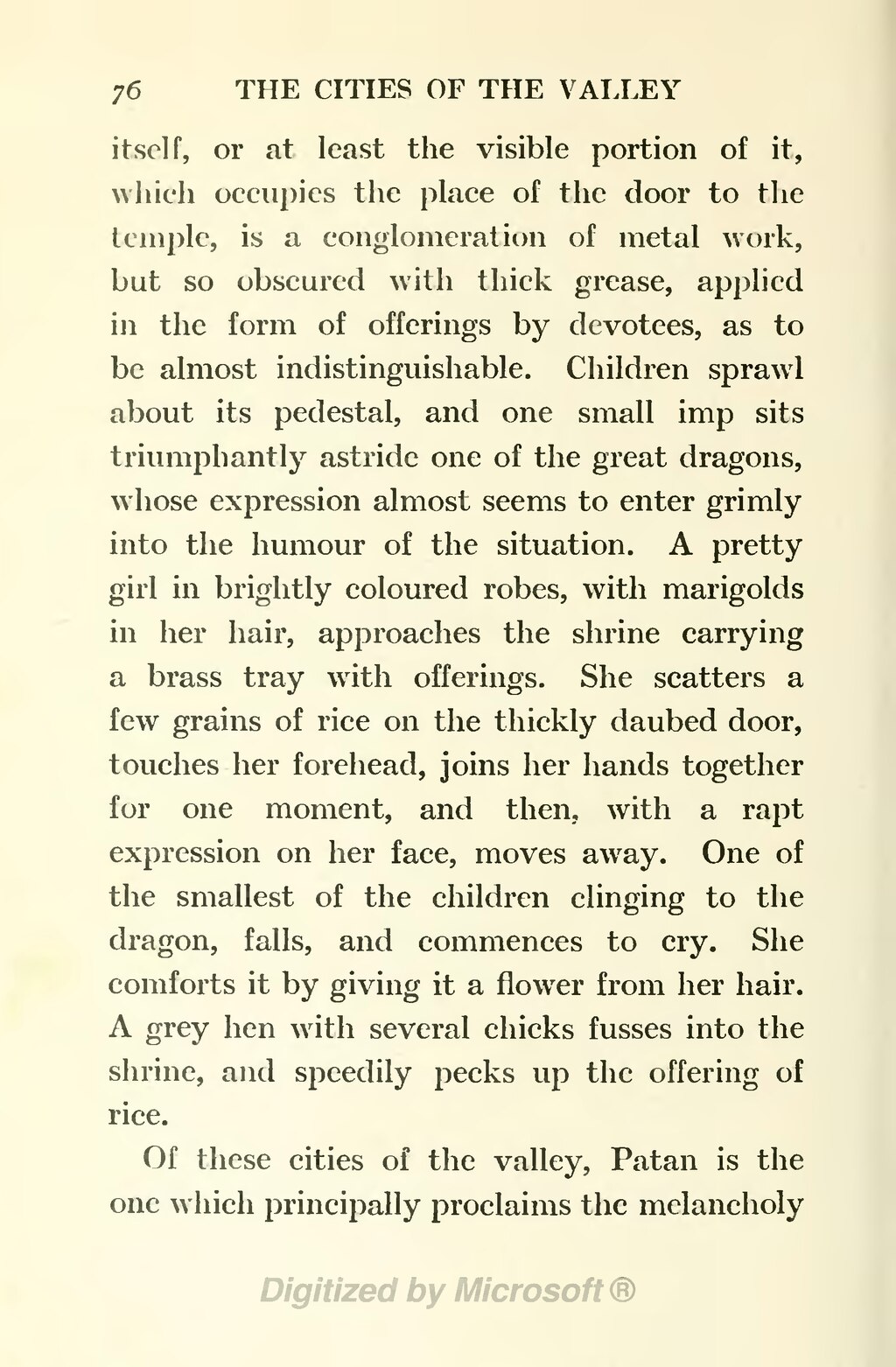itself, or at least the visible portion of it, which occupies the place of the door to the temple, is a conglomeration of metal work, but so obscured with thick grease, applied in the form of offerings by devotees, as to be almost indistinguishable. Children sprawl about its pedestal, and one small imp sits triumphantly astride one of the great dragons, whose expression almost seems to enter grimly into the humour of the situation. A pretty girl in brightly coloured robes, with marigolds in her hair, approaches the shrine carrying a brass tray with offerings. She scatters a few grains of rice on the thickly daubed door, touches her forehead, joins her hands together for one moment, and then, with a rapt expression on her face, moves away. One of the smallest of the children clinging to the dragon, falls, and commences to cry. She comforts it by giving it a flower from her hair. A grey hen with several chicks fusses into the shrine, and speedily pecks up the offering of rice.
Of these cities of the valley, Patau is the one which principally proclaims the melancholy
